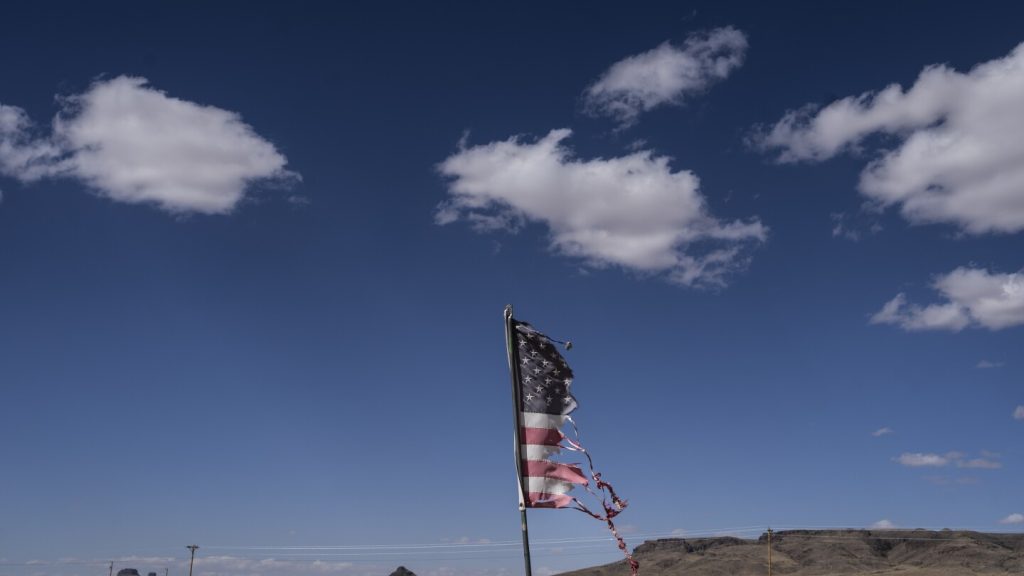Life on Native reservations in Arizona is marked by a lack of opportunities, high rates of poverty, limited access to basic amenities, and a sense of disconnect from the modern world. Many young people are forced to leave their homes in search of better opportunities in larger cities, as there are very few job prospects on the reservations. This exodus has left many elderly individuals without care and has perpetuated a cycle of poverty and despair within the community.
The political landscape in Native reservations has also been shaped by these challenges, as both Democratic and Republican parties try to mobilize voters in the far reaches of Arizona. Campaigning on Native lands has required creativity, with posters and ads often written in Navajo or drawn by hand. Voting activists have resorted to traveling to remote areas, hosting events like goat roping to encourage voter registration, and even riding on horseback to reach disillusioned voters. Overcoming the historic barriers and distances that have isolated these communities is a major focus of the 2024 election campaigns.
Despite the hardships faced by residents of the reservations, their rich cultural heritage and traditions remain a source of pride and resilience. Many continue to carry on ancestral practices and preserve their language and customs. However, the lack of investment by both tribal and federal governments in infrastructure, education, and healthcare has hindered progress and economic development on the reservations. The disparity between the traditional way of life and the modern world is stark, creating a sense of isolation and stagnation in many communities.
The emigration from Native lands has also had a significant impact on the economy of the reservations. Young people like Tatum Grey are forced to leave their homes in search of better opportunities, as there are very few programs or job prospects available locally. The lack of economic opportunities has led to a decline in population and a sense of hopelessness among residents. Many families have been torn apart by the need to seek employment outside of the reservations, further exacerbating the challenges faced by the community.
As the 2024 election approaches, the political parties are making efforts to engage with voters on the reservations and address the unique challenges they face. Campaign organizers are finding creative ways to reach out to voters, such as hosting events and using radio ads to connect with individuals in remote areas. The goal is to empower residents of the reservations and ensure that their voices are heard in the political process. Overcoming the barriers of distance and isolation is crucial in giving these communities a sense of agency and representation in the political arena.
Overall, life on Native reservations in Arizona is marked by a complex interplay of cultural richness, economic challenges, and political struggles. Despite the hardships faced by residents, their resilience and commitment to preserving their heritage remain strong. The 2024 election campaigns are providing an opportunity to address the unique needs of these communities and work towards building a more inclusive and equitable society for all residents of Arizona, including those living on Native reservations.


